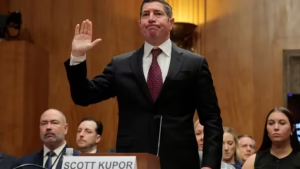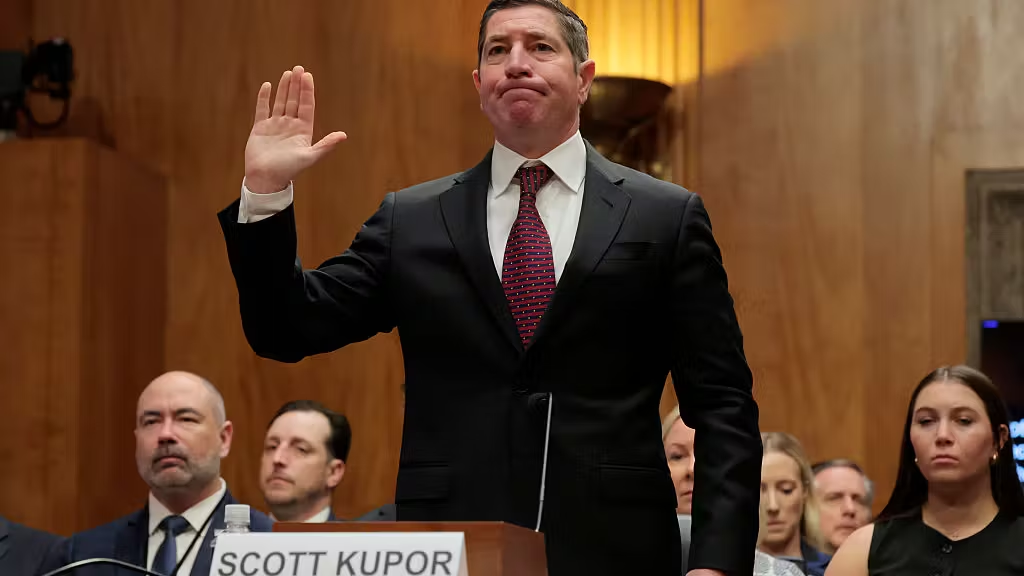A Landmark Shift in Federal Hiring Standards
Federal Government Finally Returns, For the first time in over four decades, the U.S. federal government can now hire based on objective merit. A Washington, D.C. judge has ended the 44-year-old Luevano Consent Decree, opening the door for aptitude-based testing in federal job hiring.
This major development is expected to shape President Donald Trump’s legacy and revolutionize civil service quality for years to come.
What Was the Luevano Consent Decree?
In 1981, Angel Luevano sued the federal government over the use of the Professional and Administrative Career Examination (PACE). The test was designed to evaluate and select top-tier candidates for government jobs. Luevano, backed by civil rights organizations, claimed the test disproportionately disqualified Black and Hispanic applicants.
To avoid further litigation, the Office of Personnel Management (OPM) under the Carter administration suspended the test. A temporary agreement became a decades-long policy that prioritized racial outcomes over verified competence.
Trump Administration Revives Meritocracy
In January, the Trump administration filed to dissolve the outdated consent decree. The case had long been dormant, and the original judge had passed away. Still, the court accepted the brief. Remarkably, Angel Luevano agreed to terminate the decree without conditions.
This decision signals a broader recognition that disparate impact claims—where unequal outcomes alone suggest discrimination—no longer dictate federal hiring.
OPM Celebrates Return to Skills-Based Testing
OPM Director Scott Kupor described the development as a turning point for federal employment. “We’re making civil service great again,” he told The Daily Wire. Kupor emphasized that objective hiring practices will improve public service by staffing agencies with truly qualified professionals.
He noted the cultural shift underway: “Can we make it a high-performance workforce? If we succeed, that will be this president’s legacy.”
Flawed Self-Assessments Replaced with Real Evaluation
Since the end of PACE testing, applicants have been evaluated using self-assessments. These allow candidates to rate themselves on various job skills—with no proof required. Kupor said the system encouraged dishonesty and failed to differentiate capable applicants from unqualified ones.
With AI and copy-paste applications flooding HR systems, the need for real assessments has become urgent. The old process often rewarded exaggeration instead of talent.
Ending the Era of Equal Outcome Over Merit
The Luevano Consent Decree was perhaps the most sweeping example of “disparate impact” theory applied in real-world hiring. Its elimination marks a return to fairness through standards, not quotas.
OPM General Counsel Andrew Kloster confirmed that the termination came without government concessions. “They just flat out agreed,” he said. “This never would’ve happened without the plaintiff’s cooperation.”
Objective Standards to Guide Future Hiring
OPM is now expected to roll out new job-specific aptitude tests. While it remains undecided whether a general civil service exam will return, specialized assessments for roles like programmers, analysts, and engineers are already in planning.
Instead of vague self-evaluations, applicants will soon take real tests—like coding challenges or logic exams—tailored to the job.
Ending Cronyism and Elevating Excellence
Kupor said the consent decree created an unpredictable hiring system prone to favoritism. Without standardized benchmarks, even well-intentioned hiring managers struggled to identify top performers.
“We’re going to attract really, really good people,” Kupor said. “They’re going to be fairly tested for their merit. That’s what real fairness looks like.”
Objective testing reduces both racial and political bias. When every candidate is judged by the same measurable standards, the system naturally becomes more equitable.
Conclusion: A New Era for American Civil Service
This policy change is a major victory for competence, fairness, and accountability in government. The move away from subjective, race-conscious hiring will ensure that only the most capable applicants earn roles in federal agencies.
Merit is making a comeback—and with it, a government more responsive, effective, and deserving of the people it serves
for more latest news check out our website: usnewsinsight









